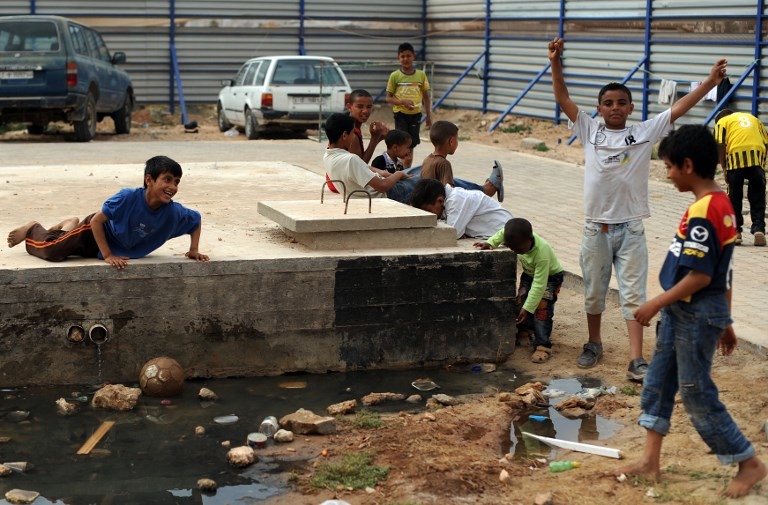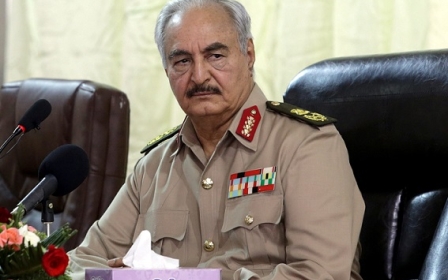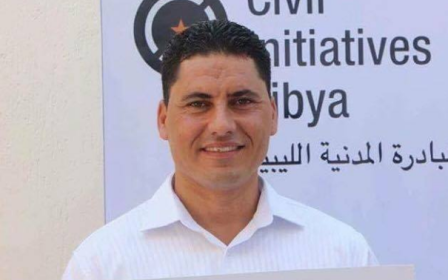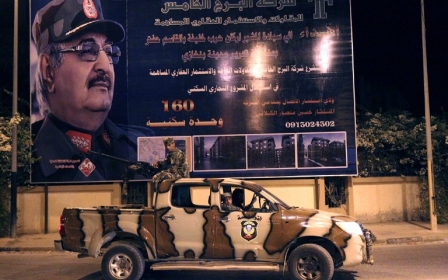Thousands denied return to Benghazi by Libya general's allies

Armed groups, some linked to the self-styled Libyan National Army, have prevented thousands of internally displaced families from returning to their homes in the eastern city of Benghazi, Human Rights Watch said on Thursday.
The displaced Libyans reported theft of property, arrests, torture and forcible disappearances at the hands of groups linked to the LNA, which is led by renegade general Khalifa Haftar, HRW said in a statement.
According to the rights group, an estimated 13,000 families fled Benghazi after Haftar launched a campaign against militants in 2014. It called on Haftar to "act resolutely to end the attacks on civilians in Benghazi".
"Senior LNA commanders who have stood by since 2014 while their forces torture and disappear people and plunder their property can and should be held to account by local or international courts," HRW's deputy Middle East and North Africa director, Eric Goldstein, said.
In January, Haftar instructed his forces to facilitate the return of those who were displaced and denounced forced displacement and assaults on private property.
The Misrata municipal council has also called on the UN-backed government to postpone its decision to allow internally displaced people to return to Tawergha. The town was used as a staging ground for attacks on Misrata during the 2011 uprising that eventually toppled and killed longtime dictator Muammar Gaddafi.
The Tripoli-based government announced in December that Tawergha residents would be allowed to return in February. The decision followed a reconciliation deal between representatives of Tawergha and the city of Misrata.
Tawergha, located some 38 kilometres (23 miles) south of Misrata, has been a ghost town since anti-Gaddafi militias, mainly from Misrata, ransacked the town and drove out its residents, believing they had aided his forces during the uprising.
Wednesday's statement by the Misrata city council said the postponement was necessary because "media escalation from some parties" disrupted security arrangements.
Libya plunged into chaos following a 2011 uprising and is now split between rival governments in the east and west, each backed by myriad militias.
Middle East Eye propose une couverture et une analyse indépendantes et incomparables du Moyen-Orient, de l’Afrique du Nord et d’autres régions du monde. Pour en savoir plus sur la reprise de ce contenu et les frais qui s’appliquent, veuillez remplir ce formulaire [en anglais]. Pour en savoir plus sur MEE, cliquez ici [en anglais].




